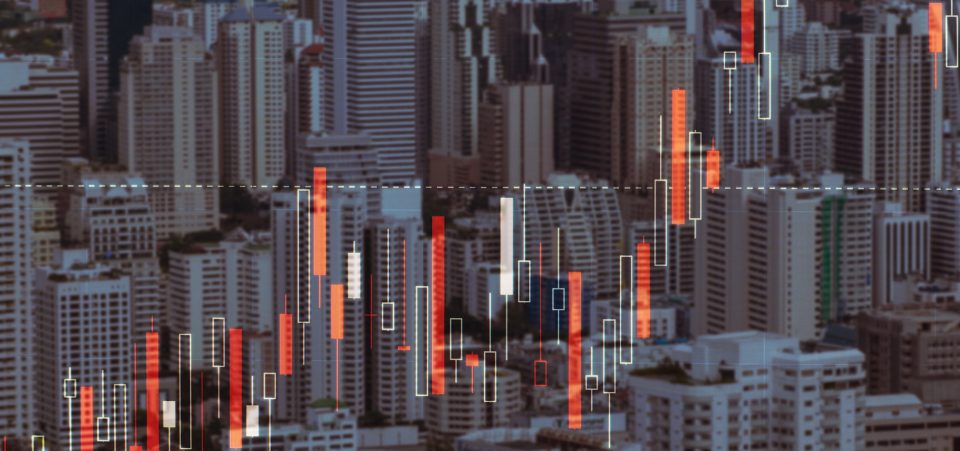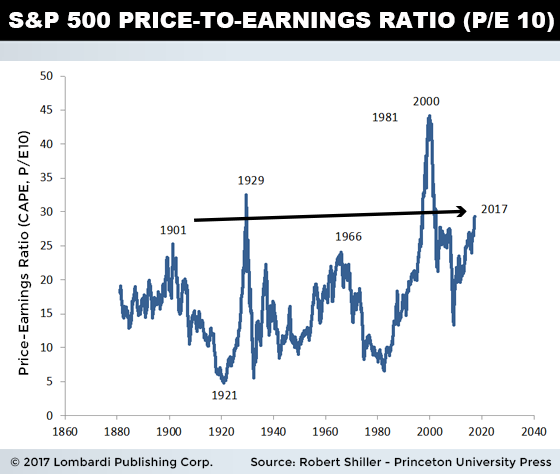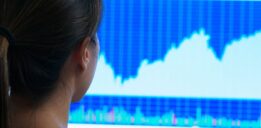Bill Gross Warns About the Highest Level of the Market Since the 2008 Financial Crisis
If a financially savvy version of Sleeping Beauty were to wake up today after dozing off some nine years ago, shocked by the financial crisis in 2008, everything would look fantastic. In June, the Dow Jones index beat a new historic high, going over 21,205 points. The index of major U.S. industrial stocks has climbed by more than seven percent since January and 71% over the last five years.
Should said Beauty be tech savvy and a Silicon Valley enthusiast, she would be even more excited by the Nasdaq’s performance. The Nasdaq, which some people call the U.S. tech index, also hit new records. It went over 6,340 in June as well.
But the records lack substance. There’s a sense that something has gone awry. Some investors expect an upcoming financial crisis. Certainly, the stock market outlook for 2017 is precarious.
The Experts Are Alarmed by the Prospects of Another 2008 Financial Crisis
The “some” does not refer to mere average investors, who look at their small portfolios occasionally. Well-seasoned financial experts have begun to sound the warning bells. Indeed, the average investor should pay attention. The bells are starting to sound the alarm close to Wall Street itself. It’s time to start worrying that the idea of a financial crisis in 2017 has a high probability.
Bill Gross, the emblematic manager of Janus Capital Group, Inc., says that U.S. markets are experiencing levels of risk that are at the highest levels since the 2008 financial crisis. Bill Gross’s net worth of $2.5 billion suggests that investors should pay attention to his observations. Even if they should disagree, the billionaire has made a name for himself. Bill Gross’s portfolio, or rather the portfolio of the fund he manages—Janus Capital—is rather mixed, even a little tech-heavy.
But Gross has a clear warning to investors about what they should avoid in their portfolios. He is worried about the fact that investors are ignoring the real economy and focusing too much on the financial economy. (Source: “Bill Gross advises investors to cut risk on U.S. growth woes,” Reuters, June 13, 2017.)
He said recently at a conference organized by Bloomberg, that instead of buying low and selling high, investors are buying high and then crossing their fingers. (Source: “Bill Gross warns U.S. market risk is at highest since 2008 crisis,” MarketWatch, June 10, 2017.)
The Markets Are Overpriced and There’s a Bubble
The reason for the risk of an imminent financial crisis, like—or worse than 2008—should be considered as the No. 1 rule of investing. Stocks in the United States are overpriced and there’s a bubble. That is, most stocks have already exceeded the limits of their valuations. Price-to-earnings (P/E) ratios are bordering on the ludicrous. U.S. markets are too expensive. Check the P/E of any major stock on the NASDAQ or the DJIA and, chances are, it’s priced out of common sense.
In my view, Tesla Inc (NASDAQ:TSLA) takes the cake. But, as John Lennon said, you may think I’m a dreamer, but I’m not the only one. Even Elon Musk thinks the company’s $50.0-billion market cap—more than Ford Motor Company (NYSE:F)—is excessive. (Source: “Even Elon Musk Thinks Tesla’s Stock Is Insanely Overvalued,” Vanity Fair, May 19, 2017.)
Tesla’s price-to-earnings ratio is practically zero, whereas the average for the automobile industry is 19.25. (Source: “Tesla Motors, Inc. (NASDAQ:TSLA) showed P/E ratio of 0,” Newburgh Press, May 23, 2017.)
Then, there’s the current darling of the NASDAQ, Amazon.com, Inc. (NASDAQ:AMZN), which has recently achieved a P/E ratio of over 180! Yes, Amazon has huge prospects, but it’s in the retail business. If people suddenly stop earning money, they will be less inclined to afford all that Amazon could sell them. The markets are in a precarious position. There’s a strange confidence in President Donald Trump’s economic plan. Yet, Trump’s presidency itself has come under fire.
Without Trump, everything from the stimulus tax plan to the deregulation of Wall Street would go out the window with him. The market’s post-election “turbo” boost would screech to a halt. The risk of impeachment exists and investors should be careful about the stocks they pick. Indeed, several observers are beginning to worry about stock valuations in U.S. markets. The U.S. equity market has been in a bubble for some time.
A bubble, basically defined, is any prolonged phenomenon where a stock’s value grows faster than a company’s profits. For profits to continue, economic growth, as measured by gross domestic product (GDP), should be healthy—at a global level. The current DJIA and Nasdaq indices, were they grounded, would be far lower because world GDP levels are not high enough.
The Economic Fundamentals Are Weak
The economic fundamentals are simply not strong enough to warrant the current market values. There is an over-appreciation of the stock markets, notably the Dow Jones and the NASDAQ. The European markets, on the other hand, are performing more reasonably. Their valuations are growing, but there has also been a much-better-than-expected recovery in certain parts of Europe. At least, that has been the case for the time being.
A financial crash on Wall Street would make any recent European gains in economic growth futile. Indeed, everything is shaping up for a financial collapse in 2017. That is Bill Gross’s next financial prediction, as well as that of many other keen market observers.
Bill Gross’s skepticism implies that he’s not bullish on Wall Street, regardless of whether the S&P 500 yields 20%. Perhaps, like his fellow expert Marc Faber, he would invest in Europe where P/E ratios have been far more reasonable and the economy has shown signs of improvement.
Meanwhile, the potential causes of a crash scenario on Wall Street are building. Not surprisingly Bill Gross predicts a crisis similar to that of the 2008 financial crisis/collapse. It could be another Great Depression. Judging by the recent highs, which are totally disjointed from economic reality, the stock market outlook for the next three months should have you worried.
That’s because there’s simply little fodder for good news now. It’s likely to be scarcer in the second half of the year. Bogged down in the difficulties, Donald Trump seems to be at a standstill. It is unlikely that 2017 will see the shadow of a tax cut, let alone that of a stimulus plan.
The European assets—and even, counter to most expectations just months ago, the euro—have benefited from some political risk surprises. The fact that an establishment leader such as Emmanuel Macron, a Rothschild banker in his previous life, as the President of France did much to reduce fears of a European Union collapse.
Thus, the Eurozone has gained strength and stability. Despite the additional lifting of a political risk in Europe, the U.S. markets face greater risks. That’s because the very promise of real economic growth, the essence of Trump’s electoral campaign last year, rests on political quicksand.
Donald Trump’s Program Has Weak Foundations
Donald Trump’s fiscal program was to be the basis of a sustained rebound in U.S. growth. But Trump’s political fortunes have softened—to put it mildly. That has raised doubts among several analysts about the optimism of his goals. It’s no coincidence that fund managers like Bill Gross have started to express serious concerns about the state of the U.S. economy and the potential for a second round of the 2008 financial crisis.
While growth in the U.S. economy has been revised upwards in the first quarter to 1.2% year on year, it remains a mediocre pace compared to the fourth quarter of 2016 (+2.1%). It’s also way off Trump’s own target of three percent by 2018. But for this to happen, U.S. businesses must invest much more in resources, both human and capital.
The problem is that to do that, those same businesses, large or small though they are, simply lack the confidence in the economy to make the effort. This is the only way to boost productivity and growth. So far, the numbers suggest it’s not happening. Moreover, the Trump administration’s plan to accelerate growth is to reduce taxes—especially corporate taxes—to deregulate the financial sector and boost exports needs the President to enjoy the political backing to push it through.
Trump has managed to get the repeal of the Dodd–Frank Wall Street Reform and Consumer Protection Act through Congress. (Source: “House votes to repeal Dodd-Frank. Now what?,” CNN Money, June 8, 2017.)
This means that while the fiscal plan might remain stuck and growth proceeds at stagnation levels, banks have regained the freedom to speculate at will, just like they did before the 2008 financial crisis. Thus, risk has moved higher without any of the real growth measures gaining any traction.
Sadly, recent history suggests investors should expect the worst. Trump has proposed tax cuts that are too good to come true. The tax cuts will, supposedly and rather magically, finance themselves without boosting the deficit. Such optimism rests on the assumption that the much-ballyhooed robust growth is coming—thanks to the tax cuts.
The Federal Reserve’s monetary policy, which sees Donald Trump’s potential stimulus measures as “an upward risk” in its forecasts for growth and inflation, also has some tough calculations to study. It expects growth and, as such, it will have to confront the fact that the conditions for growth don’t exist.







